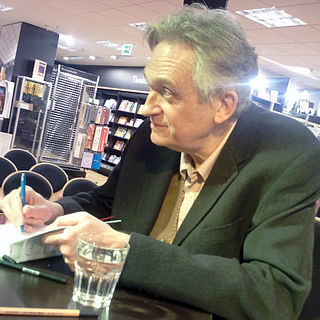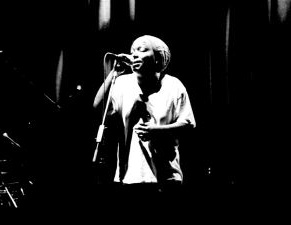A Quote by Jackie Chan
I hate violence, yes I do. It's kind of a dilemma, huh?.
Related Quotes
Violence never really deals with the basic evil of the situation. Violence may murder the murderer, but it doesn’t murder murder. Violence may murder the liar, but it doesn’t murder lie; it doesn’t establish truth. Violence may even murder the dishonest man, but it doesn’t murder dishonesty. Violence may go to the point of murdering the hater, but it doesn’t murder hate. It may increase hate. It is always a descending spiral leading nowhere. This is the ultimate weakness of violence: It multiplies evil and violence in the universe. It doesn’t solve any problems.
The ultimate weakness of violence is that it is a descending spiral, begetting the very thing it seeks to destroy. Instead of diminishing evil, it multiplies it. Through violence you may murder the liar, but you cannot murder the lie, nor establish the truth. Through violence you may murder the hater, but you do not murder hate. In fact, violence merely increases hate... Darkness cannot drive out darkness: only light can do that. Hate cannot drive out hate: only love can do that.
The use of violence in our struggle would be both impractical and immoral. To meet hate with retaliatory hate would do nothing but intensify the existence of evil in the universe. Hate begets hate; violence begets violence; toughness begets a greater toughness. We must meet the forces of hate with the power of love; we must meet physical force with soul force. Our aim must never be to defeat or humiliate the white man, but to win his friendship and understanding.
This is our dilemma--either to taste and not to know or to know and not to taste--or, more strictly, to lack one kind of knowledge because we are in an experience or to lack another kind because we are outside it. [. . .] Of this tragic dilemma myth is the partial solution. In the enjoyment of a great myth we come nearest to experiencing as a concrete what can otherwise be understood only as an abstraction.
I feel that non-violence is really the only way that we can follow because violence is just so self-defeating. A riot ends up creating many more problems for the negro community than it solved. We can through violence burn down a building, but you can't establish justice. You can murder a murderer, but you can't murder murder through violence. You can murder a hater, but you can't murder hate. And what we're trying to get rid of is hate, injustice, and all of these other things that continue the long night of man's inhumanity to man.
My approach to violence is that if it's pertinent, if that's the kind of movie you're making, then it has a purposeI think there's a natural system in your own head about how much violence the scene warrants. It's not an intellectual process, it's an instinctive process. I like to think it's not violence for the sake of violence and in this particular film, it's actually violence for the annihilation of violence.
People who are atheists, they hate God, they hate the expression of God, and they are angry with the world, angry with themselves, angry with society and they take it out on innocent people who are worshipping God. And whether it's a Sikh temple, or a Baptist church, or a Catholic church, or a Muslim mosque - whatever it is - I just abhor this kind of violence, and it's the kind of thing that we should do something about.
Happiness. We're tearing our hair out to try to find a definition of it, for heaven's sake. Is it joy? People will tell you that it isn't, that joy is a fleeting emotion, a moment of happiness, which is always welcome, mind you. And then what about pleasure, huh? Oh, yes, that's easy, everybody knows what that is, but there again it doesn't last. But is happiness not the sum total of lots of small joys and pleasures, huh?
Non-violence and cowardice are contradictory terms. Non-violence is the greatest virtue, cowardice the greatest vice. Non-violence springs from love, cowardice from hate. Non-violence always suffers, cowardice would always inflict suffering. Perfect non-violence is the highest bravery. Non-violent conduct is never demoralising; cowardice always is.
Love has no middle term; either it destroys, or it saves. All human destiny is this dilemma. This dilemma, destruction or salvation, no fate proposes more inexorably than love. Love is life, if it is not death. Cradle; coffin, too. The same sentiment says yes and no in the human heart. Of all the things God has made, the human heart is the one that sheds most light, and alas! most night.































